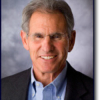Jon Kabat-Zinn

Jon Kabat-Zinn
Jon Kabat-Zinnis Professor of Medicine Emeritus and creator of the Stress Reduction Clinic and the Center for Mindfulness in Medicine, Health Care, and Society at the University of Massachusetts Medical School. Kabat-Zinn was a student of Buddhist teachers such as Thich Nhat Hanh and Zen Master Seung Sahn and a founding member of Cambridge Zen Center. His practice of yoga and studies with Buddhist teachers led him to integrate their teachings with those of science. He teaches mindfulness, which he...
NationalityAmerican
ProfessionEducator
Date of Birth5 June 1944
CountryUnited States of America
Sometimes shutting off the sound on the television can allow you to actually watch the game and take it in in an entirely different and more direct way - a first-order, first-person experience - rather than filtered through the mind of another.
The only time that any of us have to grow or change or feel or learn anything is in the present moment. But we're continually missing our present moments, almost willfully, by not paying attention.
Discipline provides a constancy which is independent of what kind of day you had yesterday and what kind of day you anticipate today.
Breathing is central to every aspect of meditation training. It's a wonderful place to focus in training the mind to be calm and concentrated.
Initiate giving. Don't wait for someone to ask. See what happens - especially to you. You may find that you gain a greater clarity about yourself and about your relationships, as well as more energy rather than less. You may find that, rather than exhausting yourself or your resources, you will replenish them. Such is the power of mindful, selfless generosity. At the deepest level, there is no giver, no gift, and no recipient . . . only the universe rearranging itself.
When experience is viewed in a certain way, it presents nothing but doorways into the soul.
Perhaps ultimately, spiritual simply means experiencing wholeness and interconnectedness directly, a seeing that individuality and the totality are interwoven, that nothing is separate or extraneous. If you see in this way, then everything becomes spiritual in its deepest sense. Doing science is spiritual. So is washing the dishes.
From the perspective of meditation, every state is a special state, every moment a special moment.
Buckminster Fuller himself was fond of stating that what seems to be happening at the moment is never the full story of what is really going on. He liked to point out that for the honey bee, it is the honey that is important. But the bee is at the same time nature's vehicle for carrying out cross-pollination of the flowers. Interconnectedness is a fundamental principle of nature. Nothing is isolated. Each event connects with others.
Mindfulness is so powerful that the fact that it comes out of Buddhism is irrelevant.
So, in meditation practice, the best way to get somewhere is to let go of trying to get anywhere at all.
We call the effort to cultivate our ability to be in the present moment ‘practice’ or ‘meditation practice.’
Mindfulness is not about getting anywhere else.
Even before smart phones and the Internet, we had many ways to distract our selves. Now that's compounded by a factor of trillions.